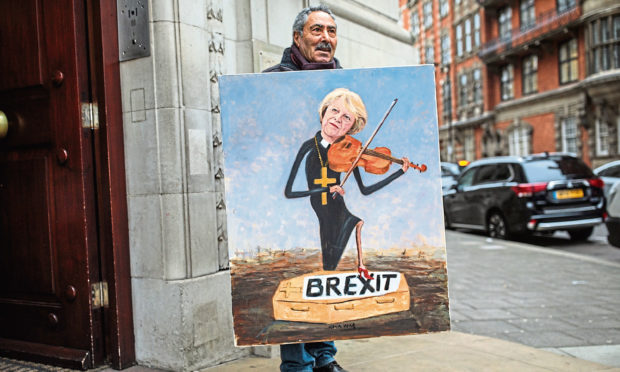The lights are going out all over Britain, smothered by ego and stupidity.
Our parliamentary democracy, based on individuals elected by constituency, gathered as two main parties, governed by pragmatism and shared self-interest, is unravelling. We are witnessing the death of the British political model.
This current parliamentary session is one of shame. Though shamelessness seems the prevailing mood.
At Prime Minister’s Questions, to a packed chamber, Theresa May batted back Jeremy Corbyn’s feeble attacks with ease, to a crowd smug on the benches. Crisis – you would never have guessed. I write before the no confidence vote in May’s government. Sadly, there is no sense the debate will produce surprises.
On Tuesday, the Conservative government lost a vote by the largest margin ever but the prime minister refuses to resign. She says it is her duty to deliver what the people voted for in 2016. Yet May’s Brexit is not what the people want.
That is why Conservatives joined Labour, Lib Dem, SNP, DUP and Plaid to reject it.
On Tuesday night May told the Commons she would reach out to other parties to find a solution. By yesterday morning it emerged this did not include the leader of the opposition. Exclamation marks are frowned upon in good writing – here, they would look comically inadequate. The truth is that our political model is broken. The Conservative Party is split between Brexiteers, pragmatists and Remainers. The same applies to Labour. These schisms are not simple, they can’t be mended in a second referendum or a general election manifesto.
The usual paths of British politics would only lead the nation deeper into chaos. A People’s Vote which put May’s plan versus Remain doesn’t begin to satisfy the problem – it could just as well be May’s plan versus a no–deal Brexit. In the process faith in democracy, and the authority of parliament, would die. An election would return MPs just as divided while also wrecking the Conservative and Labour parties. The core British success, that our representatives could be both individuals and party members, now appears an explosive risk. We face something like a revolution, but with no leader or goal.
The consequences of either an election or second referendum in such divided times could be calamitous – wrecking the party system, thus wrecking the normal path to finding a prime minister and a government.
What’s at stake is not just membership of the EU – ironically that begins to seem minor in the context. It is how Britain governs itself and the future of the post-war British social contract. We are a united nation in part because of shared values about reason and pragmatism. Historically we share a soft nationalism based around the idea we are the good guys. Now we are torn by competing British nationalisms, none of them particularly attractive.
In January 2019 it has become vividly clear how shared values and interests no longer exist. This is not the Britain anyone thought possible, of maniacal nationalists in Northern Ireland calling themselves loyalists while holding Westminster to ransom.
Of Tory nationalists waging a forty year war against their own party and leaders in the name of quitting the EU.
Of a Labour Party that was anti-EU in the 1970s and 1980s, then very pro-EU in the 1990s and 2000s, only to accidentally elect a leader stuck in the past, unable to hold a coherent position on Brexit, or the respect of his ranks.
In recent years we have lurched from the sentimentality of the London Olympics opening ceremony 2012, to a Scottish independence bid in 2014, and UK independence vote in 2016.
Where would we be without the binding religion of the NHS? Britain no longer has a shared idea of itself. In the process we alienate the many Europeans who live here, we disrupt our economy and business sector, achieve none of the advantages promised from Brexit and we look like idiots to the world.
Smash the British political model and you say goodbye to assumptions about the NHS, state education, fair rates of tax. Carry on down this chaotic path, and all is at risk.
We have taken the state for granted and become distracted by flimsy ideas about identity and destiny. We have traded our reason for emotion, our facts for slogans. Our only hope is that we do not have an election until Brexit is done. A second referendum, an idea I once supported, must be avoided if this crisis is to be contained. The day of departure must be put off for as long as possible.
In the time that buys, the opponents of May’s plan must publish counter-proposals which can be debated in the Commons – restricted to one proposal per party.
Should that fail to determine consensus, then Brexit must be cancelled and a Royal Commission is set up to honour the 2016 referendum by offering the public realistic options.
Then we can have a general election and the public can vote in light of the new information.
It is delay or self-destruction.


